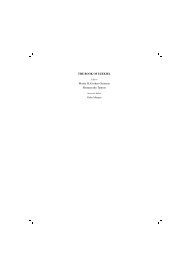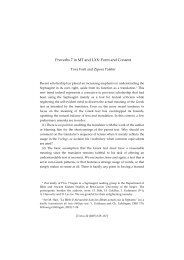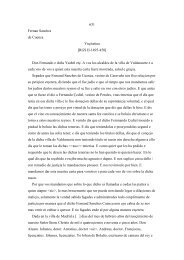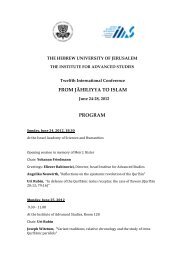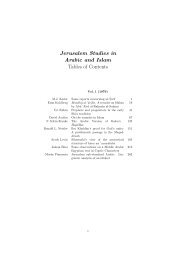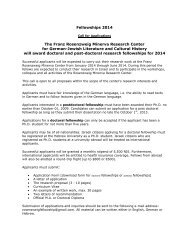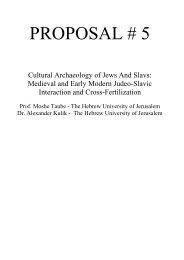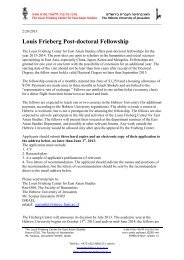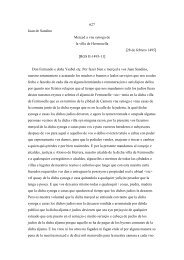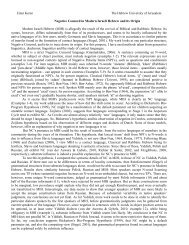Baber Johansen
Baber Johansen
Baber Johansen
Create successful ePaper yourself
Turn your PDF publications into a flip-book with our unique Google optimized e-Paper software.
11<br />
and the fainting person are obliged to perform the prayer that they missed<br />
during their incapacity. In this particular case, Íanafī jurists engage in a<br />
contradictory debate between adherents of different doctrines, on the<br />
determining role of the cosmic causes of prayer and fasting and on the<br />
importance of understanding the legal discourse as a condition for the<br />
capacity to incur obligations. 42<br />
VI. Acts of Worship (ÝibÁdÁt)<br />
VI.1: Deontology and the Muslim cult<br />
The doctrinal conflicts within the HanafÐ school on the role of cosmic<br />
causes for the cultic obligations of the fainting person is important for the<br />
understanding of the role that references to cosmic causes of legal norms<br />
play in the jurists’ regulation of cultic obligations. Cultic acts are<br />
considered legal obligations in Muslim fiqh. In order to be obliged to<br />
perform valid cultic acts, a person has to have attained the age of puberty<br />
and the capacity of sound reasoning. In addition, she has to adhere to the<br />
religion of Islam. Through this criterion, the cult is characterized as a<br />
system of norms that is addressed to Muslims only, a law for the Muslim<br />
religious community. Acts of worship constitute an integral part of the<br />
law. The "pillars of Islam," that is the five obligatory acts that a Muslim<br />
has to fulfill in his service to God, comprise in the first place the<br />
testimony of belief (shahāda). This testimony consists of two parts: "I<br />
testify that there is no God but God and MuÎammad is his Prophet." The<br />
other four cultic obligations are the obligatory prayers (ÒalÁt), the almstax<br />
(zakÁt), fasting (Òawm) and the pilgrimage (Îajj). Every law book<br />
invariably opens with chapters on ritual purity (ÔahÁra), seen by most<br />
Sunnī law schools—with the exception of the ÍanafÐs— 43 as an<br />
obligatory act of worship that requires a declaration of intent (niyya).<br />
The history of the Muslim cult has not been a major focus of Occidental<br />
research. It does not diminish the important contributions of Wensinck 44<br />
and Klaus Lech 45 to underline that a path-breaking change in outlook has<br />
been produced in the works of Zeev Maghen 46 and Marion Katz 47 in the



